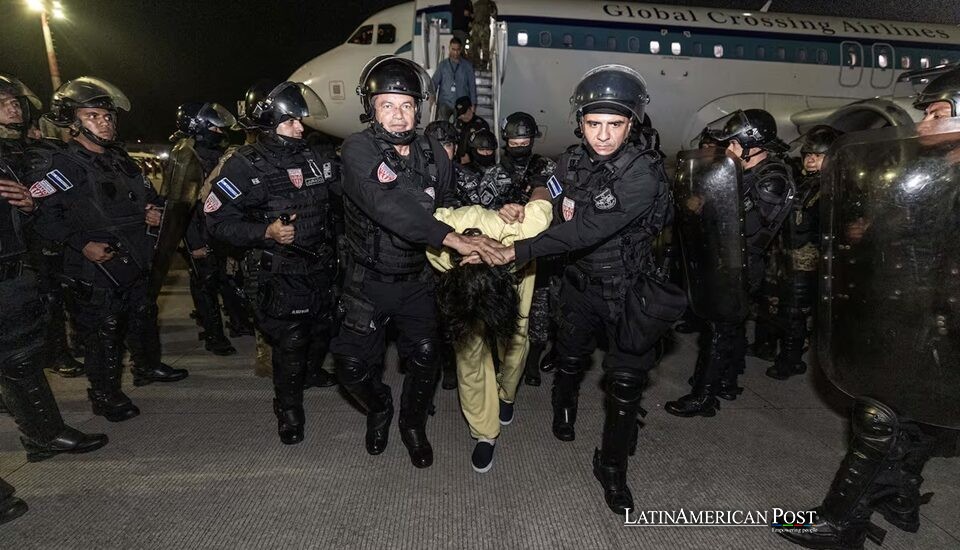How Chilean Court Used Uber Receipts to Convict Tren de Aragua Leaders Redefining War on Crime

Inside Chile’s desert city of Arica, investigators cracked a Venezuelan crime syndicate not with bullets or mass arrests, but spreadsheets—turning a paper trail into a prosecution that’s changing how Latin America thinks about gangs, migration, and justice itself.
The Spreadsheet That Shook a Criminal Empire
As the Associated Press reported, when Chilean police stormed safe houses in Arica’s Cerro Chuño neighborhood in 2022, they weren’t just looking for weapons or drugs. What they found instead—stacked beside stun guns and blood-stained rags—was something almost banal: handwritten ledgers. But these weren’t simple to-do lists. They were precise records of a violent business. Every Uber fare, every caffeine-fueled lookout shift, every bottle of chemical cleanser for cleaning torture rooms—itemized, timestamped, and logged in blue ink.
“These weren’t just receipts,” prosecutor Bruno Hernández explained to The Associated Press. “They were the backbone of the entire operation.”
The numbers told a story—a dark, organized, and highly profitable one. Hitmen were paid $1,000 per kill. Regional managers earned $1,200 a month. Couriers got bonuses during the holidays. For Hernández and his team, the ledgers did something law enforcement across the continent had struggled to do: they proved structure. This wasn’t a loose gang of thugs. This was a multinational enterprise—Tren de Aragua—with Chile’s cell, known as Los Gallegos, operating like a franchise.
“We had to prove not simply murders, but a hierarchy,” paralegal Esperanza Amor told the AP.
And with those ledgers in hand, they did. What followed would reshape criminal prosecution across Latin America.
Chile’s Strategy: Ledgers, Not Deportations
While other governments opted for brute force or deportation headlines, Chile took a quieter, deeper route—one rooted in financial tracking, digital forensics, and good old-fashioned accounting.
It was a stark contrast to the U.S. approach, where President Donald Trump’s administration often labeled suspects as gang members and deported them en masse. Former FBI agent Daniel Brunner weighed in to the AP: “When the U.S. snatches guys off the street, they’re taking out the tip of the iceberg. What Chile did was follow the iceberg to its roots.”
By building a racketeering case that didn’t just rely on confessions or bloodstains—but on salaries, job titles, and emoji-decoded WhatsApp messages—Chile’s prosecutors won 34 convictions in March. Another dozen gang leaders were sentenced in July to a combined 300 years behind bars.
The effects were swift. Arica’s homicide rate, which had spiked by over 200% between 2019 and 2022, dropped by nearly half once the suspects were jailed. Prosecutor Mario Carrera, standing in the middle of Cerro Chuño’s pastel-colored concrete homes, told the AP: “It marked a milestone. We stopped something before it could metastasize.”
How Tren de Aragua Built Its Desert Empire
Tren de Aragua didn’t enter Chile with guns blazing—it slipped in with the migration flow.
In 2021, as pandemic restrictions drove desperate Venezuelans into smuggler trails through the Atacama Desert, the gang saw opportunity. Its leader, Héctor “Niño” Guerrero, sent lieutenants to commandeer the routes used by coyotes and human traffickers. “From their perspective, it was virgin territory,” crime journalist Ronna Rísquez told the AP.
The gang took over Cerro Chuño, a toxic-waste dump turned shantytown, and began charging protection fees to migrants and shopkeepers alike. Inside abandoned flats, they built makeshift torture cells. Victims were shocked with electric wires, filmed, or worse—buried alive in cement or stuffed into suitcases left in alleyways.
Arica resident Saida Huanca described a daily dread. “We live in fear of them,” she said. People stopped leaving their homes after dark.
To piece together the puzzle, Hernández’s team sifted through thousands of intercepted WhatsApp messages. Gang members used a coded system: cloud emojis meant a police raid was coming, pineapples marked safe houses, bones indicated debt, and snakes indicated betrayal. Drone footage and cellphone GPS data confirmed meetings and movement. By the time the trial began, defense lawyers had little to challenge.
The case was airtight.
Regional Ripple Effects—and the Fight Ahead
Chile’s courtroom victories come just as Latin America debates how far it should go to crush criminal networks that ignore borders. Some praise El Salvador’s President Nayib Bukele, whose mass roundups have jailed tens of thousands. Others call it an authoritarian overreach. In Chile, a similar tide of fear has buoyed the far-right candidacy of José Antonio Kast, who promises border walls and Bukele-style crackdowns.
But security experts warn that mass arrests alone can’t dismantle criminal networks that move like corporations. “You need prosecution, financial intelligence, and regional cooperation,” said consultant Pablo Zeballos. Even former Peruvian Interior Minister Rubén Vargas, speaking to the AP, described Chile’s model as “a democratic template” for dismantling organized crime without infringing on civil liberties.
Still, the battle isn’t over. Tren de Aragua may be fractured, but it’s not extinct. Authorities suspect the gang continues to operate from inside Chile’s prisons. Extortion calls are still made from smuggled phones. Hernández isn’t resting. “Organized crime always adapts,” he said. “Now we track them behind bars.”
corporations. “You need prosecution, financial intelligence, and regional cooperation,” said consultant Pablo Zeballos. Even former Peruvian Interior Minister Rubén Vargas, speaking to the AP, described Chile’s model as “a democratic template” for dismantling organized crime without infringing on civil liberties.
Still, the battle isn’t over. Tren de Aragua may be fractured, but it’s not extinct. Authorities suspect the gang continues to operate from inside Chile’s prisons. Extortion calls are still made from smuggled phones. Hernández isn’t resting. “Organized crime always adapts,” he said. “Now we track them behind bars.”
Also Read: Chile Confronts Its Past by Turning Cult Compound into Memorial to State Terror
The court files may be closed, but the paper trail hasn’t ended. Somewhere, in a spreadsheet or a group chat, a new blueprint is being drafted. For Chile’s prosecutors, the task now is to find it—before it spreads.





